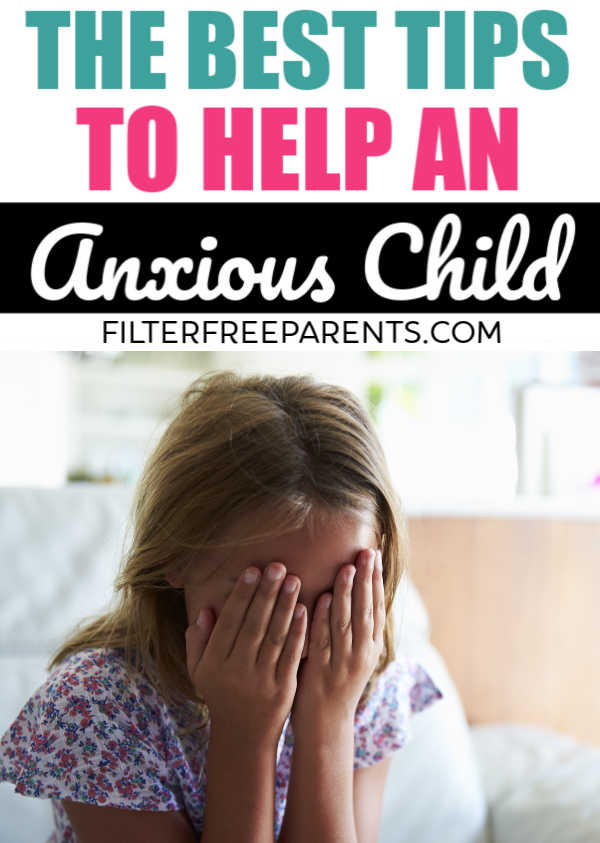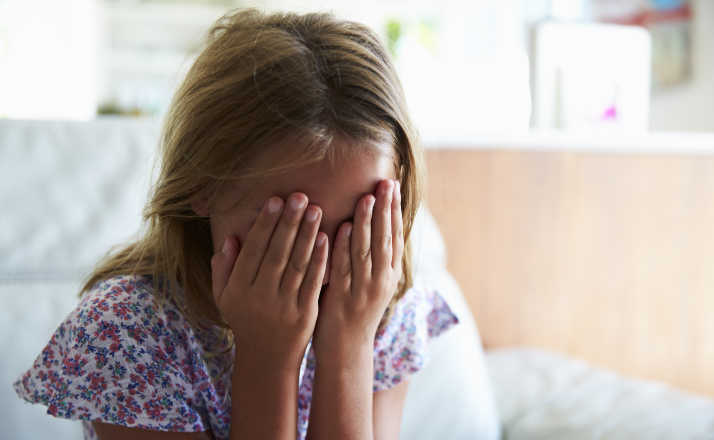My children inherited my eyes. They got my hair, my love of words, and my awkward goofiness too. And lucky them, they also got my crippling anxiety.
I was an anxious child, to put it mildly.
My super power was taking one “what if” and turning it into an elaborate scenario in which my life was irreparably ruined. Fun times. So when I started seeing the same idiosyncrasies and tendencies in my own children, it made me, well – anxious.
My oldest has generalized anxiety. He worries. A lot. He latches onto thoughts and concerns and replays them over and over until they consume him. He actively grieves the cat we lost two years ago. He lays awake at night panicked about his uncertainty over the existence of an afterlife. He goes over everything that went wrong that day, big or small, and feels the unpleasantness of it as if it were in real time.
And I get it. I’m in the next room doing the same most nights.
My youngest has less intrusive thoughts and perpetual anxiety, and more full-blown, sudden panic attacks.
Tantrums turn into anxiety attacks without warning. He might start out by yelling that he doesn’t want to go to bed, but soon after he is unable to breathe, never mind calm himself down.
Recognizing that we couldn’t handle this alone, we sought the help of a professional. Some of the information she gave surprised me, and some seemed natural, but all of it was helpful.

Here are the best tips to help your anxious child
Don’t comfort too much
This seemed so wrong to me. When my son comes in at night because he is worried, my first instinct is to talk him through it. She told us that with legitimate worries, like a problem at school that needs a solution, that is appropriate (though not in the middle of the night.)
For irrational thoughts or recurrent ones that often come with anxiety, the best thing to do is to give take the power from the thoughts and give them to the child. Help them learn to refuse to acknowledge the thoughts.
Easier said than done, right? She gave us some tools to help with that too.
Tell the thoughts to go away
Like any other unwanted pest, just tell them to get lost. Block them out. Refuse to allow them to enter your head.
Distraction
Put on music for your anxious child to listen to. She said ones with lyrics are best, so that they can focus on the words. Books on tape work for night time as well. During the day, any distraction will do – toys, TV, whatever takes attention away from the intrusive thoughts.
Worry Monsters or Worry Dolls
Make a monster with a mouth out of a tissue box, or use tiny worry dolls to whisper to. You can even find worry eaters here. When a worry or intrusive thought arises, tell your child to allow themselves to think it in the moment, write it down and put it into the monster’s mouth, or whisper it to the dolls, and then let it go.
That worry is done. Any physical item for them to symbolically pass their worries to can work.
Set a time for worrying
Decide that for a certain time period every day, be it five minutes or forty-five, they are allowed to worry about anything they want to and much as they want to. But when time is up, that’s it. Any irrational worry is sent away outside that set time period.
Of course all of this requires practice and discipline. With this comes learning about what a rational concern that needs actionable steps and a plan is, vs. irrational or intrusive thoughts that should be ignored. I’m thirty-eight and I have not mastered this yet. My hope is that by giving them these tools early, they will be able to incorporate them more intrinsically than I did.

Calm Down Tips During The Day
Tense and relax each body part moving up the body
Start with your toes, then legs, then bum, etc. Work up the body until each muscle has been flexed and relaxed.
Use calming apps
There exist several apps meant for helping with anxiety, it’s a matter of searching them and experimenting to see which, if any, help. For my youngest, there is a gif I found on Giphy that is simply a shape that unfolds then folds back in on itself, that has the written words “breath in” and “breathe out” repeated during the process. This gif snaps him out of the can’t breathe period of his anxiety attacks.
But, if none of these ideas work with your child, the best thing you can do for them is:
Seek professional help
Tips and tricks are fabulous, but they aren’t all-inclusive, and they aren’t tailored to your child specifically. Sometimes other methods are necessary, like regular therapy, or even medication in some cases.
First and foremost, let your child know that you acknowledge their anxiety, and that sometimes it feels out of their control. Don’t dwell on the specific intrusive thoughts or try to rationalize them, but do assure your child you will help them through these scary thoughts and feelings.











